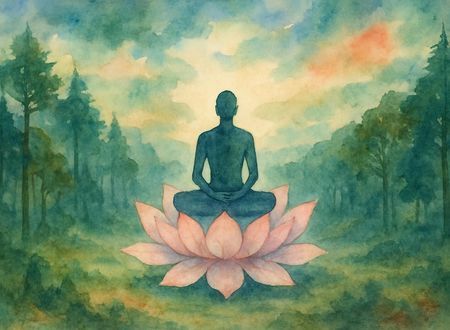Have you ever seen mosquitoes jet skiing on a clear-water pond? Probably not. The water may be stagnant but if it’s clean, it’s usually free from the mozzies. When the water is stagnant and impure, however, you will see the carriers of viruses and diseases making that water body their [frequent] home. It’s important to get a grip on this analogy to fully understand the difference between a regret arising from a mistake because you didn’t know any better vis-à-vis a regret born of a deliberate action performed with a malefic intention right from the outset.
Some of you have probably gone through the regrets the readers shared in response to my post, The Top Five Regrets of the Dying. And if you believe me then know this, you will experience a certain lightness in your heart and consciousness once we finish the regret funeral tonight. Having said that just because we feel bad about something we did or didn’t do in the past does not make it a regret. From a moral and spiritual perspective, it’s a little more nuanced than that. Allow me to share a Japanese folklore (narrated by Iseult Gillespie) I took from this video. Verbatim:
In ancient Kyoto, a devout Shinto scholar lived a simple life, but he was often distracted from his prayers by the bustling city. He felt that his neighbors were polluting his soul, and he sought to perform some kind of personal harae—a purification ritual that would cleanse his body and his mind. He decided to travel to the revered Hie Shrine. The trip was an arduous climb that took all day. But he was glad for the solitude it afforded him, and the peace he felt upon returning home was profound.
The scholar was determined to maintain this clarity for as long as possible, and resolved to make this pilgrimage another 99 times. He would walk the path alone, ignoring any distractions in his quest for balance, and never straying from his purpose. The man was true to his word, and as days stretched into weeks, he walked through driving rain and searing sun. Over time, his devotion revealed the invisible world of spirits which exists alongside our own. He began to sense the kami, which animated the rocks underfoot, the breeze that cooled him, and the animals grazing in the fields. Still he spoke to no one, spirit or human. He was determined to avoid contact with those who had strayed from the path and become polluted with kegare. This taboo of defilement hung over the sick and deceased, as well as those who defiled the land or committed violent crimes. Of all the threats to the scholar’s quest for spiritual purity, kegare was by far the greatest. After paying his respects for the 80th time, he set out for home once more.
But as darkness fell, he heard strained sobs in the night air. The scholar tried to push forward and ignore the moans. But the desperate cries overwhelmed him. Grimacing, he left his path to follow the sound to its source. He soon came to a cramped cottage with a woman crumpled outside. Filled with pity, the scholar implored the woman to share her sorrow. She had explained that her mother just died but no one would help her with the burial. At that news, his heart sank. Touching the body would defile his spirit, draining his life force and leaving him forsaken by the kami. But as he listened to her cries his sympathy soared. And so, they buried the old woman together, to ensure her safe passage into the spirit world.
The burial was complete, but the taboo of death weighed heavily on the scholar. How could he have been so foolish, to shirk his most important rule and corrupt his divine journey? After a tormented night, he resolved to go back to the shrine to cleanse himself. To his surprise, the usually silent temple was filled with people, all gathering around a medium who communicated directly with the kami. The man hid himself, not daring approach in case anyone glimpse his polluted soul.
But the medium had other ways of seeing, and called him forward from the crowd. Ready to be forsaken, the scholar approached the holy woman. But the medium merely smiled. She took his impure hands in hers, and whispered a blessing only he could hear thanking him for his kindness. In that moment the scholar discovered a great spiritual secret: contamination and corruption are two very different things. Filled with insight the scholar set himself back on his journey.
The same principle applies when moving through the spiritual purgatory to rid yourself of the weight of regrets. Just because you did something wrong does not mean your consciousness is corrupted. Just because you gave into temptation(s) does not make you are immoral or corrupt. Just because you could have done some things differently in the past does not imply that you are the bearer of a mediocre consciousness. I am not saying that it was all permissible, okay or justified. Yes, such verbal or physical actions might have contaminated you, but it’s unlikely that they corrupted you. And there’s a huge difference between the two.
Contamination is not your natural state of consciousness. When something is contaminated, it can be purified again with a little effort. You must not hold yourself guilty or bear the burden of any regret for any action that was merely an act of contamination.
It is corruption that really needs attention. Corruption is a behavior driven by ulterior motives. Corruption is when our words and actions are not in sync. It is when we deliberately perform an action to simply further our selfish interest while causing a loss (material, moral or spiritual) to someone else. Getting rid of corruption and its consequences takes time, determination and forgiveness.
I read this joke the other day:
I asked my dad to tell me a decision he regretted.
I must have stumped him because he just kept staring at me.
Brooding over your regret is just like that. Your regret doesn’t know you regret it. It does not help you become stronger. Much better is to reflect on it, take corrective steps wherever you can and move on. Contamination can happen to anyone, sometimes even without you knowing it, corruption on the other hand is what we consciously choose.
In a nutshell: when you keep repeating an undesirable action, it’s not contamination but corruption. The latter is much harder to weed out. Corrupt behavior cannot be undone simply by reflecting on the regret. It requires corrective action (prayashchita, penance) and absolute determination to not repeat it. Any regrets out of contamination, however, only mean that you are being too hard on yourself. It’s time to let it go. No more punishing yourself. Remember, you have a choice to make. You can either continue to live with regret or forgive yourself and move on. Besides, regret is a rather sneaky emotion. It can make you feel responsible for things that had nothing to do with you to begin with.
Whatever your regret, I hope you burn it tonight. Nurture your plant of forgiveness and I hope you won’t deprive yourself of the goodness you deserve.
Live well, live fully, live freely.
Peace.
Swami
A GOOD STORY
There were four members in a household. Everybody, Somebody, Anybody and Nobody. A bill was overdue. Everybody thought Somebody would do it. Anybody could have done it but Nobody did it.
Don't leave empty-handed, consider contributing.It's a good thing to do today.









Comments & Discussion
277 COMMENTS
Please login to read members' comments and participate in the discussion.